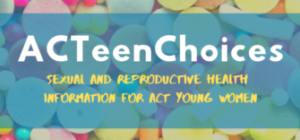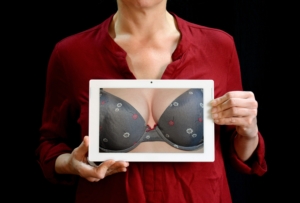Breast Health
Breast cancer develops in roughly one in eight women in Australia by the age of 85. It is more likely to be diagnosed in older women, or those who are overweight, excess alcohol or tobacco, have breast cancer in the family, of have not had children. Early detection of breast cancer means that women have a much greater chance of being treated successfully and in most cases the cancer will not return after the treatment. You are entitled to a free mammogram from the age of 40.
Getting to know your breasts
Younger people are less likely to develop breast cancer, however the Cancer Council Australia recommends to get to know the normal look and feel of your breasts, and those of your partners!
This means being aware of the usual changes. Breasts are less lumpy directly after a period, and after menopause. One week after your period ends is a good time for a self-examination which can be part of your daily routine. This can be as simple as getting to know the look and feel of your breasts during your daily activities such as when dressing, showering, applying cream or looking at the mirror.
Check out Jean Hailes: Check your breasts fact sheet for instructions, or Cancer Australia: Breast cancer awareness and view the video below!
Cancer Australia: Find it early and survive
What to look for
Changes may include:
- new lump or lumpiness, especially if only in one breast
- change to size or shape of breast
- change to the nipple – crusting, ulcer, redness or inversion
- nipple discharge that occurs without squeezing
- change in the skin of the breast such as redness or dimpling
- unusual pain that doesn’t go away
Nine out of ten breast changes aren’t due to cancer, but it’s important to see a doctor to be sure. If you notice an unusual breast change, see your GP as soon as possible.
Mammograms
BreastScreen Australia offers free breast mammographic screening for women aged 40 and above. Screening has the greatest potential for early detection to prevent deaths from breast cancer for women aged 50 to 74. See BreastScreen ACT for local clinics.
Strong family history of breast cancer
Less than 5% of all breast cancer cases are caused by an inherited gene fault. If you are concerned, visit your GP to assess your risk using Cancer Australia’s online familial risk assessment tool.
It may also be appropriate for some women with strong family history of breast cancer to be referred to a family cancer clinic which can provide a more precise risk assessment, genetic testing advice and an individualised management plan.
For more information see Cancer Australia: Breast cancer risk factors.
How to reduce your risk of breast cancer
There’s no proven way to prevent breast cancer from occurring. However, you can still aim to reduce the risk through making healthy life choices and other risk-reducing strategies:
- Limit alcohol intake
- Maintain healthy body weight and nutritious diet
- Participate in physical activity on most days
- Stop smoking
- Longer breastfeeding duration
For more information see Cancer Australia: Breast cancer what you can do.




